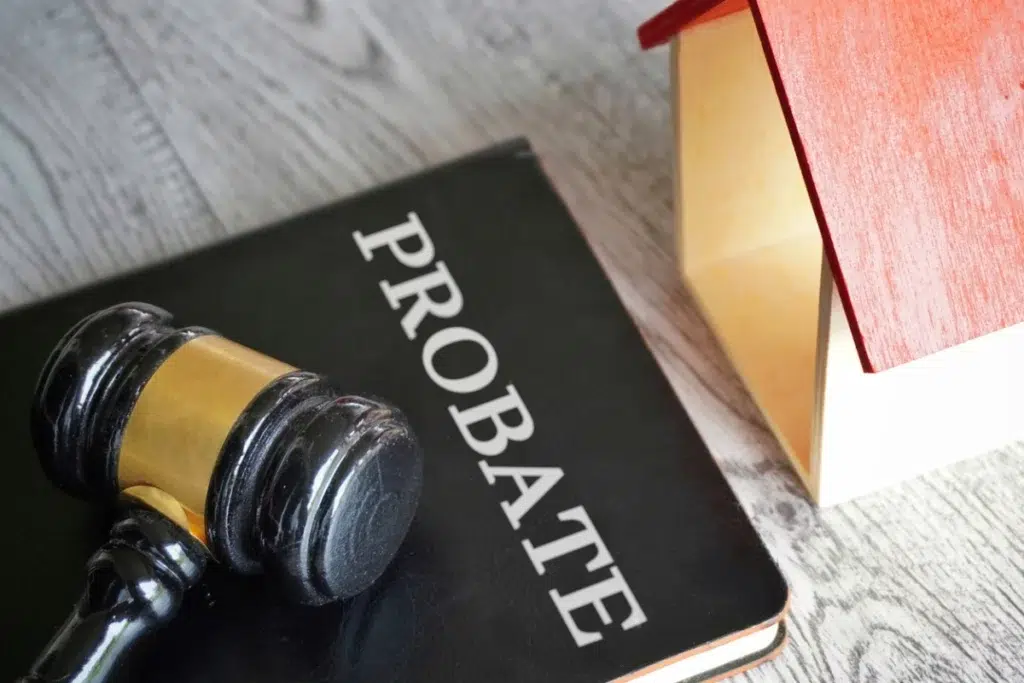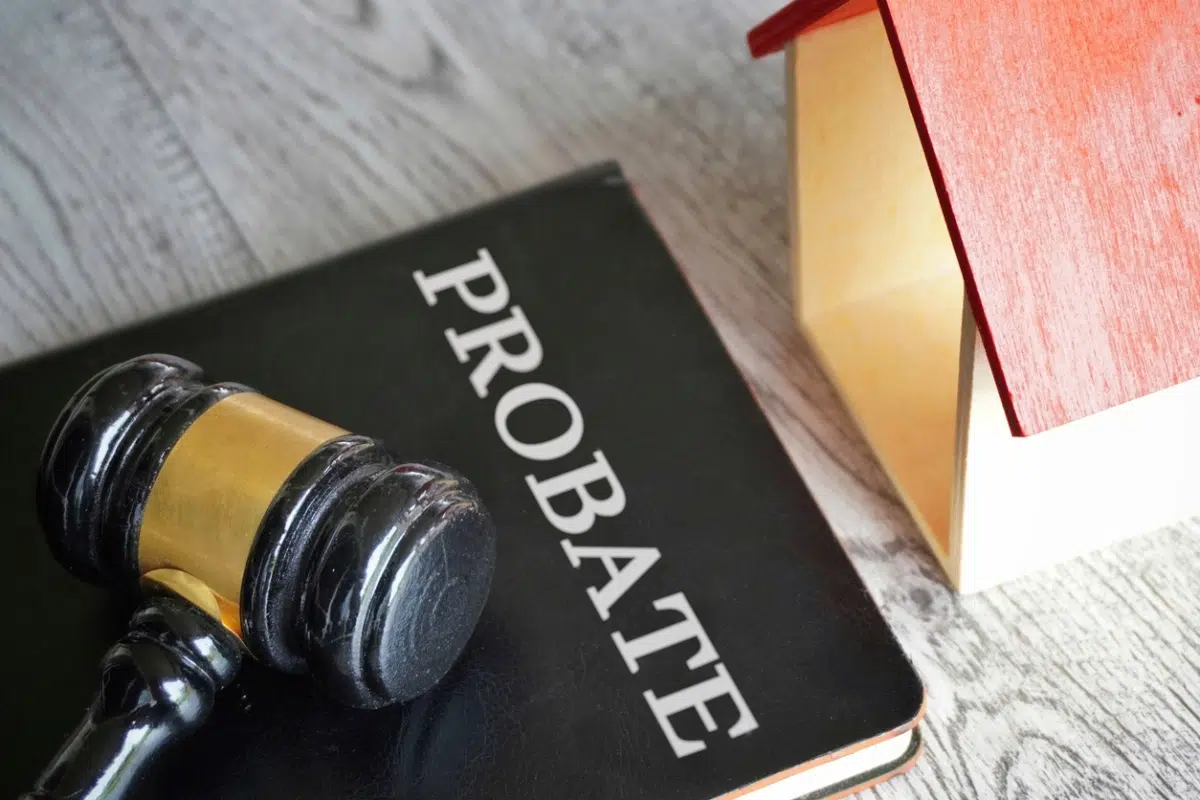
Let’s face it—probate probably isn’t something you ever expected (or wanted) to deal with. But here you are, sorting through legal matters at a time when emotions are already running high. Maybe you’re the one responsible for handling a loved one’s estate. Or maybe you’re just trying to make sense of what comes next. Either way, our probate lawyers at Lappin Estate Planning can help.
At Lappin Estate Planning, we’re not just here to explain the rules of probate—we’re here to walk you through them, one manageable step at a time. Whether your loved one left a clear Will or passed without one, we’re ready to help you make sense of it all.
Have questions about probate or need our guidance? Get in touch now by calling at (561)-778-8590.
Understanding Probate in Florida
Probate is simply the court’s way of helping wrap up someone’s affairs after they have passed away. Here in Florida, we have our own rulebook for this called the Florida Probate Code.
What Is Probate?
Imagine you’re helping clean out a loved one’s home after they have passed. You need to figure out what the deceased person owned, pay his or her final bills, make sure taxes are paid and returns are filed (income tax returns, estate tax returns, gift tax returns, and all other returns), and make sure the deceased person’s assets are distributed properly. That’s essentially what probate does, just with judicial oversight.
In everyday terms, probate involves:
- Making sure their Will is the real deal (if they left one)
- Creating a list of everything the deceased person owned
- Getting fair values for assets
- Paying off any lingering debts (because even in death, those credit card bills don’t disappear)
- Distributing the remaining assets
Think of probate as posthumous accounting—it’s the process of dotting all the i’s and crossing all the t’s on someone’s life ledger.
Types of Probate Administration in Florida
Florida offers several types of probate administration:
- Formal administration: This is the standard, full probate process. It’s more thorough but also takes more time (typically six to 12 months) and costs more money.
- Summary administration: This is a simplified process available when the death occurred more than two years ago or the value of the estate (not counting exempt property) is $75,000 or less.
- Disposition without administration: This is an even simpler process available in very limited circumstances, usually when the deceased only left personal property of very small value.
Each type serves different needs, and the right one for your situation depends on various factors unique to the estate.
When Is Probate Necessary in Florida?
Not all assets need to go through probate. Generally, probate is necessary when the deceased person owns assets in their own name alone. These might include:
- Real estate titled solely in the deceased person’s name
- Bank accounts solely in the deceased person’s name
- An interest in a business
- Personal property like cars, jewelry, and furniture
However, many assets can pass to new owners without probate, such as:
- Assets held in a Revocable Trust
- Property held in joint tenancy with right of survivorship
- Accounts with designated beneficiaries (like life insurance policies, retirement accounts, and transfer-on-death accounts)
Understanding what needs to go through probate and what doesn’t can save you time, money, and stress. If someone you love has passed away recently, you might want to speak with an attorney to know if there’s a need for probate.
Timeline for Florida Probate
“So, how long is this going to take?” That’s usually the next question you might have, and we get it. You want closure.
For a regular (formal) probate in Florida, you’re generally looking at about six to 12 months from start to finish. Yes, we know—that sounds like forever when you’re in the middle of it. If a federal estate tax return is required to be filed, the minimum time is generally 18 months.
But here’s the reality check: certain situations can stretch that timeline even longer:
- If the estate’s properties are scattered everywhere
- When family members aren’t exactly getting along
- If someone contests the Will
- When there are tricky-to-value items
- If there are complicated debts or tax situations
Factors Affecting Probate Law
Imagine this: two families are going through probate at the same time. One wraps things up in a couple of months without much stress. The other gets caught in a web of delays, disputes, and paperwork that drags on for over a year. What made the difference?
That’s the thing about probate—it’s not a one-size-fits-all process. How smooth (or stressful) it ends up being depends on a mix of factors, including:
- The size of the estate: Generally speaking, the larger the estate, the more involved the probate process will be. A multimillion-dollar estate with a federal estate tax return filing requirement, multiple properties, investment accounts, and business interests is going to take more time to sort through than a modest estate with a single bank account and a car.
- Whether there’s a valid Will: Having a valid, up-to-date Will can simplify things. A well-written will names a personal representative, clearly outlines who gets what, and leaves less room for confusion or conflict. That makes probate easier for everyone involved. If there’s no Will, the court will follow Florida’s intestacy laws to decide how assets are divided.
- The type of assets involved: Not every asset goes through probate. Some assets can often bypass the probate process entirely. These are known as non-probate assets. On the other hand, probate assets will need to go through the court process.
- Outstanding debts or creditor claims: One of the key steps in probate is settling any debts owed by the deceased. That might include credit card balances, medical bills, personal loans, or even taxes. In Florida, creditors are given a window of time to come forward and file a claim against the estate.
- Family disputes or challenges to the Will: Emotional tensions sometimes run high after a loss, especially when money, property, or inheritance is involved. If a family member decides to challenge the validity of the Will, the probate process can quickly become a courtroom battle.
- Court schedules and filing errors: Sometimes, the delays aren’t caused by the estate at all—they’re caused by court backlogs or minor filing errors. Florida’s court system handles thousands of probate cases each year, and even small issues with paperwork or missing signatures can lead to delays.
At Lappin Estate Planning, we help families across Florida understand how these (and many other) factors apply to their specific situation. Because even a little guidance can make all the difference.
Avoiding Probate
Okay, let’s get to what many people really want to know: “Can I just skip this whole probate thing?” With a little planning, there are several legal strategies you can use to help your loved ones bypass the probate process entirely (or at least significantly minimize their involvement in it).
Revocable Trusts
This is one of the most powerful probate-avoidance strategies available. Here’s how it works in everyday terms:
- You create a special document (the trust) where you name yourself as the Trustee (the person responsible for administering the trust). You move your assets into the trust’s name.
- You continue to use the assets as your own. Think of a Revocable Trust as your alter-ego.
- When you pass away, your successor Trustee steps in and handles everything according to your instructions—no probate is required.
The perks are pretty sweet. First of all, you can enjoy privacy. Your family business can stay private instead of becoming public record. Second of all, it’s the speed. Your can get their inheritance a lot quicker than with a probate.
Gifting
One of the simplest ways to avoid probate? Give assets away while you’re still alive. This strategy, known as lifetime gifting, can help reduce the size of your estate for estate tax purposes and pass property directly to your loved ones.
Of course, gifting needs to be done thoughtfully. Giving away too much, too soon, could create financial or tax consequences. It’s always a good idea to work with an estate planning attorney to make sure your gifting strategy supports your long-term goals and stays within legal limits.
Joint Ownership
Assets owned jointly can automatically pass to the surviving owner without probate. In Florida, common forms include:
- Joint tenancy with right of survivorship: When one owner dies, their interest automatically transfers to the surviving owner(s).
- Tenancy by the entirety: A special form of joint ownership only available to married couples in Florida, offering additional protection against creditors.
While simple, joint ownership has potential drawbacks as it can expose assets to the co-owner’s creditors and requires both owners’ consent for transactions. It could also complicate matters if co-owners disagree and may create unintended gift tax consequences. All of these things should be considered before utilizing this probate avoidance strategy.
Beneficiary Designations
Many financial accounts and assets allow you to name beneficiaries who will receive the asset automatically upon your death, including:
- Life insurance policies
- Retirement accounts (401(k)s, IRAs)
- Annuities
- Transfer on Death (TOD) accounts for investments
- Payable on Death (POD) accounts for bank accounts
Lady Bird Deeds
Florida recognizes a special type of deed called an “enhanced life estate deed” or “Lady Bird deed.” This arrangement allows you to keep full ownership and control of real estate during your lifetime while automatically transferring the property to your chosen beneficiary upon your death.
Who Is a Probate Lawyer and How Can They Help?
Most people don’t expect to become the “personal representative” of an estate. It’s not a role you apply for, and there’s rarely any training. One day, you’re grieving the loss of a loved one. Next, you’re being asked to handle everything they left behind with no real idea where to begin. Sounds familiar? That’s exactly why probate lawyers exist.
Probate attorneys can help if you are a personal representative, beneficiary, or even someone who’s developing an estate plan. If you’re the personal representative, a probate lawyer can help by:
- Translating your legal responsibilities from legalese into plain language
- Handling the mountain of paperwork (so you don’t have to figure out which form is which)
- Coaching you through managing assets (so you don’t accidentally do something that gets you in trouble)
- Notifying creditors and reviewing their claims
- Helping you navigate the tax maze
- Making sure inheritances get to the right people, the right way
- Standing beside you in court if things get contentious
If you’re a beneficiary wondering what’s happening with your inheritance, a probate attorney can help by:
- Explaining what you’re entitled to (and what you’re not)
- Reviewing those confusing accounting statements
- Addressing your concerns if you think the personal representative is doing something fishy
- Representing you if you need to contest something
- Helping negotiate family peace treaties when tensions rise
And here’s how a lawyer can help those planning ahead:
- Crafting Wills and Trusts that actually say what you mean
- Creating strategies to keep your family out of probate court
- Updating your documents when laws change or your life changes
- Making sure everything complies with Florida’s legal requirements
In times of loss, sometimes that’s the greatest comfort of all—knowing someone experienced has your back every step of the way.
When to Contact a Probate Lawyer
Ideally, you should consult with a probate attorney:
- Immediately after a death, Early guidance helps prevent mistakes and establishes a clear process moving forward. An attorney is required in Florida for a formal probate administration.
- Before a crisis: Estate planning conversations should happen while everyone is healthy, allowing for thoughtful decisions without time pressure.
- When receiving notice of probate: If you’re a beneficiary who has received notice that probate has begun, consulting an attorney helps you understand your rights.
- If disputes arise: When conflicts develop among family members, professional legal guidance becomes especially valuable.
- When facing complex assets or debts, Unusual situations call for legal guidance from a probate lawyer.
At Lappin Estate Planning, we offer initial consultations to help you determine whether you need ongoing legal representation or just initial guidance to handle matters on your own.
Lappin Estate Planning: Your Trusted Partner Through Probate
We know—probate probably wasn’t part of the plan. But if you have found yourself here, you’re already doing the right thing: looking for support, guidance, and a way forward. Because here’s the truth: you don’t have to do this by yourself.
At Lappin Estate Planning, we understand how heavy this process can feel. You’re dealing with grief, family responsibilities, and suddenly… legal paperwork, court timelines, and decisions you never thought you’d have to make.
Whether you’re just starting the process, facing a few unexpected twists along the way, or planning ahead to make things easier for your own family, we’re here to help.
Call our office at (561)-778-8590 or visit our contact us page to schedule a consultation with our probate lawyer.


